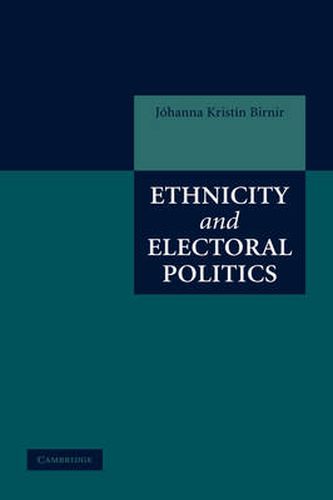Readings Newsletter
Become a Readings Member to make your shopping experience even easier.
Sign in or sign up for free!
You’re not far away from qualifying for FREE standard shipping within Australia
You’ve qualified for FREE standard shipping within Australia
The cart is loading…






This book asks what distinguishes peaceful plural democracies from violent ones and what distinguishes violent ethnic groups from peaceful ones within the same democracy. Contrary to conventional wisdom, it suggests that ethnic groups and their political demands are not inherently intransigent and that violence is not a necessary corollary of ethnic politics. The book posits that ethnic identity serves as a stable but flexible information shortcut for political choices, influencing party formation and development in new and maturing democracies. It furthermore argues that political intransigence and violence expressed by some ethnic groups stem from circumstances exogenous to ethnic affiliations. In particular, absolute restrictions on ethnic access to the executive produce conditions under which ethnic group incentive to participate in peaceful electoral politics is eliminated. A number of case studies and statistical analysis of all electoral democracies since 1945 are used to test and support the formal argument.
$9.00 standard shipping within Australia
FREE standard shipping within Australia for orders over $100.00
Express & International shipping calculated at checkout
This book asks what distinguishes peaceful plural democracies from violent ones and what distinguishes violent ethnic groups from peaceful ones within the same democracy. Contrary to conventional wisdom, it suggests that ethnic groups and their political demands are not inherently intransigent and that violence is not a necessary corollary of ethnic politics. The book posits that ethnic identity serves as a stable but flexible information shortcut for political choices, influencing party formation and development in new and maturing democracies. It furthermore argues that political intransigence and violence expressed by some ethnic groups stem from circumstances exogenous to ethnic affiliations. In particular, absolute restrictions on ethnic access to the executive produce conditions under which ethnic group incentive to participate in peaceful electoral politics is eliminated. A number of case studies and statistical analysis of all electoral democracies since 1945 are used to test and support the formal argument.